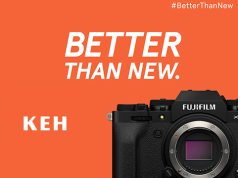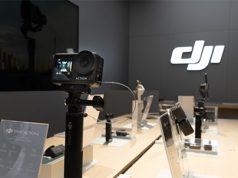Best Buy's domestic comp store sales declined 5% in December, but without mobile phone revenues, it would have been worse. The company's domestic mobile phone comp sales increased in the low double digits, driven primarily by smartphones, and helped to off-set a 15.4% decline in entertainment software comp sales and a “low double-digit” decline in TV comp sales.
Yet at one time, Best Buy considered dropping the mobile phone category. About five years ago, consumers did not consider the national electronics retailer a destination for cell phones. Best Buy's miniscule market share in that category certainly didn't help.
“We knew we were in trouble,” said Scott Anderson, Senior Director of Best Buy Mobile, recalling how company executives realized it was time to either get serious about mobile phones or leave the business. “It was about a 50/50 vote there.”
Best Buy decided to acquire the expertise needed to get serious. In late 2006, the company partnered with The Carphone Warehouse, Europe's largest independent mobile phone retailer, for the U.S. launch of Best Buy Mobile standalone, network-independent, mobile phone stores. Two years later, Best Buy acquired 50% of The Carphone Warehouse's European and U.S. retail interests.
From the start, the goals of the joint venture were three-fold: continued growth in The Carphone Warehouse's existing European markets, the development of Best Buy's CE retail market share in Europe and the infusion of The Carphone Warehouse expertise into Best Buy's North American operations to improve customer experience.
“The goal was to change the way Best Buy would sell cell phones to consumers,” Anderson said. “The shopping-for-cell-phones-in-the-U.S. experience stinks. We interviewed way too many customers who told us that.”
Best Buy and The Carphone Warehouse saw opportunity in providing consumers with a wide choice in mobile phones and service providers, simplified pricing and sales processes, non-commissioned sales assistance, and service and support for the life of the phone.
Best Buy Mobile departments are now installed in 1,200 of Best Buy's full-line stores. Today, the retailer operates 160 standalone stores, primarily in high-traffic malls where the female shopper reigns. In February, Best Buy Mobile planned to add 19 new stores, totaling 103 stores for the entire fiscal year (which ends in February).
Best Buy Mobile is making an aggressive play in a crowded field. For example, the Best Buy Mobile store in the Moorestown (N.J.) Mall, operates only two huge parking lots away from a freestanding Best Buy store.
The three-year-old Best Buy Mobile store there was compactly but smartly merchandized. All of its interactive displays were working. Handsets, tablets and notebooks could be demoed on site. Accessories packed the walls and end caps. The Best Buy Mobile department within the full-sized Best Buy store was busier and offered more SKUs, but the shelves looked a little more ragged and several interactive displays didn't work.
Yet within a mile radius of the two Best Buy Mobile locations, about a dozen other mobile phone sellers—from mall kiosks to a RadioShack to freestanding Sprint and T-mobile stores—also hawked their mobile phone wares.
What is Best Buy Mobile's competitive differentiation? Choice and customer service. “The only places in America where you can stand and hold an iPhone and a Sprint EVO phone, and compare [and buy] them are in Best Buy Mobile stores,” Anderson said.
The Best Buy Mobile Difference
Offerings vary by location, but Best Buy Mobile sells handsets, modems and service plans from Verizon Wireless, AT&T, Sprint, T-Mobile and Virgin Mobile, plus no-contract options that also include Net10, boostmobile, jitterbug, cricket and metroPCS. (Anderson estimates the SKU count at nearly 100 post-paid handsets and more than 50 pre-paid handsets. The official Best Buy Mobile tagline: “The Most Smart Phones Under One Roof!”) In addition, Best Buy Mobile sells tablets (Apple iPad, Samsung's Galaxy, Huawei's Ideos), 3G and 4G mobile broadband modems, MiFi Hotspots, and select e-readers and netbooks.
The company's national reach has allowed Best Buy Mobile to command launch exclusives (for HTC Thunderbolt, Motorola Xoom and Google Nexus S, to name a few) and carrier support for competition-maddening “Free Phone Friday” promotions.
To lower churn and preserve profit, Best Buy Mobile intensely focuses on prepping its sales force and educating the consumer. Best Buy Mobile employees undergo 80 hours of induction training before they are allowed on the sales floor and, once there, participate in 60 to 100 hours of sales training and testing throughout the year, Anderson said.
A plethora of in-store signage, online resources and monthly print buyer's guides feed consumers information about mobile phone technology and handset/service plan comparisons.
Bestbuymobile.com, revamped last year, offers a slew of tutorials and resources and easy-to-navigate filters designed to help consumers quickly find the desired handset and service package. In addition, an “Apps, Tools & Guides” section features detailed information to educate current and future mobile phone users.
For example, an in-store blog written by a sales lead at the Best Buy Mobile standalone store in Chicago Ridge, Ill., outlined the pros and cons of switching to Verizon's iPhone 4. Meanwhile, an online Mobile 411 forum allows the retailer to respond to specific issues and customer questions (i.e., “How is the HTC EVO Shift 4G different from the original HTC EVO 4G?”)
In store, Best Buy Mobile employees do a lot of handholding. Three years ago, Best Buy's mobile phone return rate was in the high-teens. That rate has dropped to “below 4%,” Anderson said, thanks to “Walk Out Working,” a free smartphone set-up program, where a Best Buy employee will sync a customer's new handset with personal e-mail accounts, set up Bluetooth headsets, transfer contacts and activate other services at no cost. “The handset manufacturers all love that program.” In addition, Anderson said, Best Buy Mobile customers increasingly opt for Geek Squad Black Tie Protection warranty in which Best Buy will repair a phone and give the customer subscriber a “loaner phone” to use during the repair or, depending on the service plan, replace the phone entirely.
Anderson is bullish on Best Buy Mobile's future, contending that Best Buy's selection, pricing and service “has really changed the way customers are shopping for cell phones in America.”
Three or four years ago, people weren't coming to Best Buy for mobile phone solutions, he said. “Now they are…We're driving more customers to our stores, taking much better care of existing customers and showing them other hardware.”
This year, Best Buy Mobile is putting a full-court press on smartphones, new tablets and support for the next-generation 4G wireless networks (WiMax from Sprint, and LTE from Verizon Wireless, AT&T and metroPCS) that are currently rolling out.
The data speeds and resulting user experience on these next-generation networks will be “noticeably improved” compared to existing 3G networks, Anderson said. (For example, LTE promises downlink data speeds of 100mbps and uplink data speeds of 50mbps.)
“Downloading a spreadsheet from work onto phone, or song or movie onto your tablet while on a flight, now can be done in seconds whereas before it used to take minutes,” Anderson said.
The faster speeds will only drive more connectivity between smartphones, computers, televisions, digital cameras and gaming. “We're all pushing 4G connectivity now, and certainly during the holidays this year it's going to be very prevalent,” Anderson concluded.





